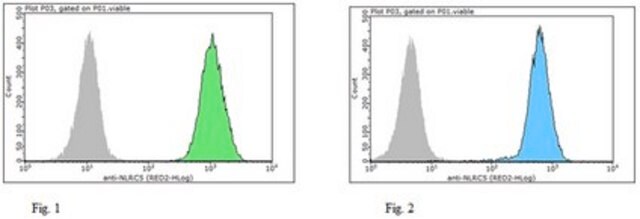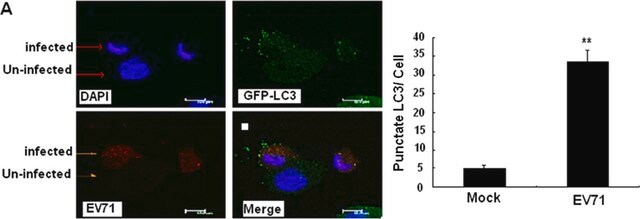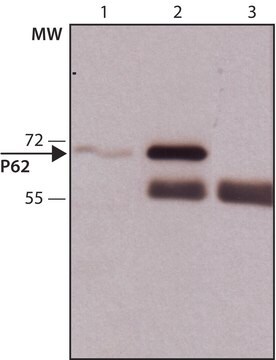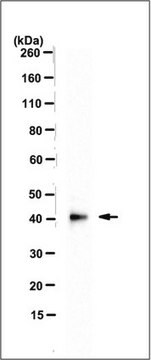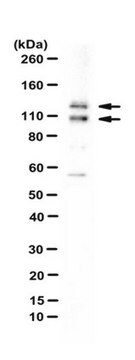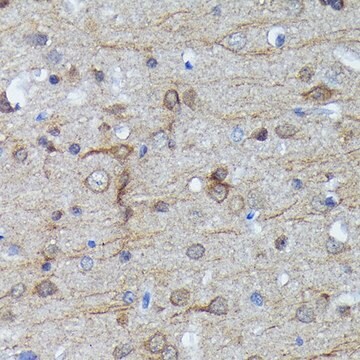MABN763
Anti-Ubiquilin 2 Antibody, clone 6H9
clone 6H9, from mouse
Sinónimos:
Ubiquilin-2, Chap1, DSK2 homolog, Protein linking IAP with cytoskeleton 2, PLIC-2, hPLIC-2, Ubiquitin-like product Chap1/Dsk2
About This Item
Productos recomendados
biological source
mouse
Quality Level
antibody form
purified immunoglobulin
antibody product type
primary antibodies
clone
6H9, monoclonal
species reactivity
human, mouse
technique(s)
immunocytochemistry: suitable
western blot: suitable
isotype
IgG1κ
NCBI accession no.
UniProt accession no.
shipped in
wet ice
target post-translational modification
unmodified
Gene Information
human ... UBQLN2(29978)
General description
Immunogen
Application
Neuroscience
Developmental Signaling
Immunocytochemistry Analysis: A representative lot detected Ubiquilin 2 in HeLa cells.
Quality
Western Blotting Analysis: 1.0 µg/mL of this antibody detected Ubiquilin 2 in 10 µg of U-251 cell lysate.
Target description
Physical form
Storage and Stability
Other Notes
Disclaimer
¿No encuentra el producto adecuado?
Pruebe nuestro Herramienta de selección de productos.
Storage Class
10 - Combustible liquids
wgk_germany
WGK 2
Certificados de análisis (COA)
Busque Certificados de análisis (COA) introduciendo el número de lote del producto. Los números de lote se encuentran en la etiqueta del producto después de las palabras «Lot» o «Batch»
¿Ya tiene este producto?
Encuentre la documentación para los productos que ha comprado recientemente en la Biblioteca de documentos.
Nuestro equipo de científicos tiene experiencia en todas las áreas de investigación: Ciencias de la vida, Ciencia de los materiales, Síntesis química, Cromatografía, Analítica y muchas otras.
Póngase en contacto con el Servicio técnico